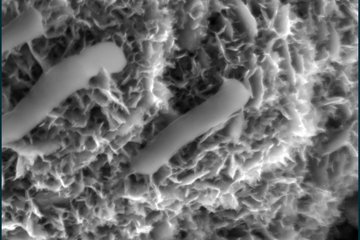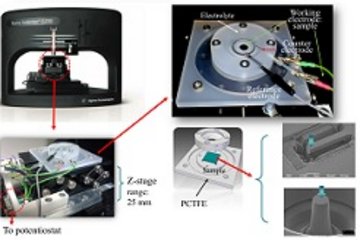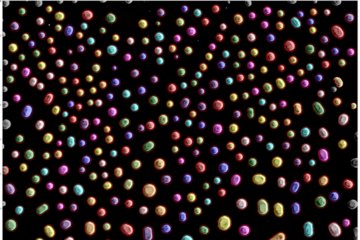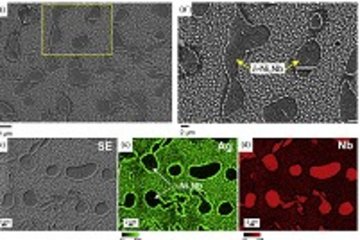All genres
661.
Talk
Ab initio determination of point defects and derived diffusion properties in metals. International conference on diffusion in materials, DIMAT2014, Münster, Germany (2014)
662.
Talk
Recent development of modelling techniques in nano- and meso-scale simulations of dislocation dynamics. Workshop on Integrated Computational Materials Engineering (ICME), Rolduc Abbey, The Netherlands (2014)
663.
Talk
Efficient coarse graining of stochastic high-dimensional configuration spaces as fundament for a fully ab initio based materials design. Colloquium WIAS, Berlin, Germany (2014)
664.
Talk
Ab initio based understanding of the segregation and diffusion mechanisms of hydrogen in steels. SteelyHydrogen 2014, International conference on hydrogen in steels, Ghent, Belgium (2014)
665.
Talk
Impact of light elements on interface properties in steels. CECAM workshop “Modeling Metal Failure Across Multiple Scales”, Lausanne, Switzerland (2014)
666.
Talk
Ab Initio Based Modelling of Stacking Fault Energies in High-Strength Steels. International Seminar on Process Chain Simulation and Related Topics, Karlsruhe, Germany (2014)
667.
Talk
Ab initio based understanding of the segregation and diffusion mechanisms of hydrogen in steels. TMS Annual Meeting 2014, San Diego, CA, USA (2014)
668.
Talk
Impact of Local Magnetism on Stacking Fault Energies: A First Principles Investigation for fcc Iron. Condensed Matter - Université Paris Descartes, Paris, France (2014)
669.
Talk
Impact of Local Magnetism on Stacking Fault Energies: A First Principles Investigation for fcc Iron. TMS 2014, San Diego, CA, USA (2014)
670.
Talk
Ab-initio study of hydrogen trapping by kappa-carbides in an austenitic Fe matrix. DPG Frühjahrstagung, Dresden, Germany (2014)
671.
Talk
Hydrogen-carbide interactions in steels: Ab-initio calculations combined with experiment. Steel & Hydrogen, 2nd International Conference on Metals and Hydrogen, Gent, Belgium (2014)
672.
Talk
Coupling of lattice dynamics and magnetism in magnetic shape memory alloys: Consequences for phase diagrams. Asia Sweden meeting on understanding functional materials from lattice dynamics (ASMFLD) conference, Indian Institute of technology Guwahati, Guwahati, India (2014)
673.
Talk
Interface-related phenomena in coupled direct and inverse magneto-caloric materials: A first-principles study. DPG Frühjahrstagung, Dresden, Germany (2014)
674.
Talk
Point defects in supercells: Correction schemes for the dilute limit. Workshop on Ab-initio description of charged systems and solid/liquid
interfaces
, Santa Barbara, CA, USA (2014)
675.
Talk
Role of the defect creation strategy for modelling dangling bonds in a-Si:H. MRS Spring Meeting, San Francisco, CA, USA (2014)
676.
Talk
Thermodynamics of materials up to the melting point: The role of anharmonicities. Asia Sweden Meeting on Understanding Functional Materials from Lattice dynamics, Guwahati, India (2014)
677.
Talk
Ab initio based understanding of the segregation and diffusion mechanisms of hydrogen in steels. Workshop on Hydrogen Embrittlement, Düsseldorf, Germany (2014)
678.
Talk
Importance of anharmonic free energy contributions in an ab initio description of the hcp to bcc transition in Ti. DPG-Frühjahrstagung 2014, Dresden, Germany (2014)
679.
Talk
Impact of weak and strong magnetic coupling on the thermodynamics of chromium. DPG spring meeting 2014 , Dresden, Germany (2014)
680.
Talk
Phase stabilities of metals and steels - The impact of magnetic excitations from fi rst-principles. ADIS (Ab initio Description of Iron and Steel) Conference 2014 , Ringberg Castle, Rottach-Egern, Germany (2014)











